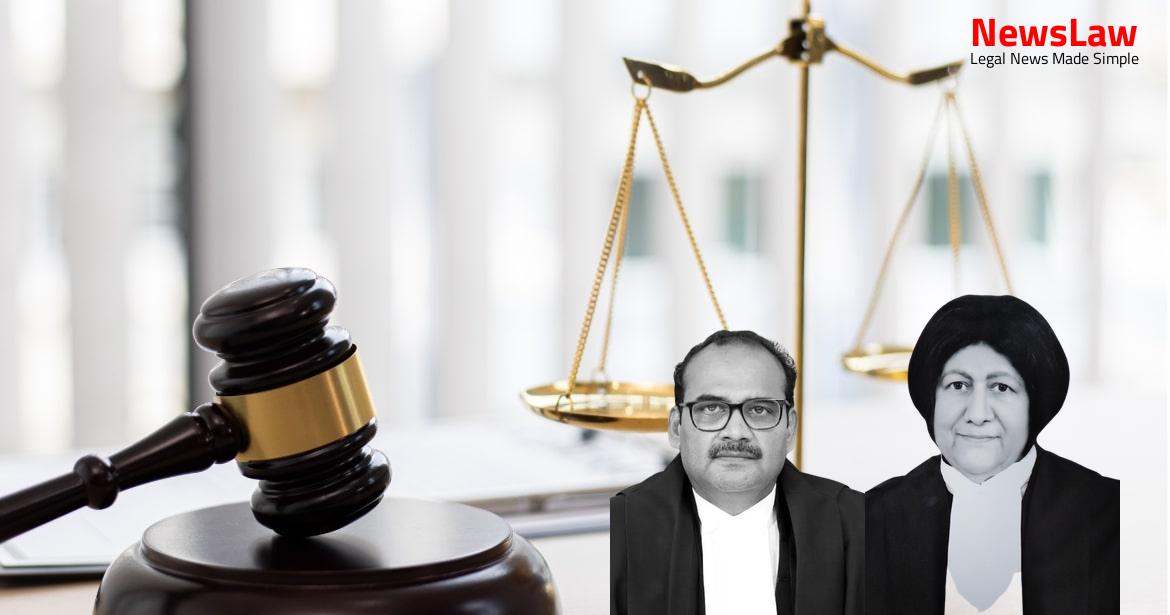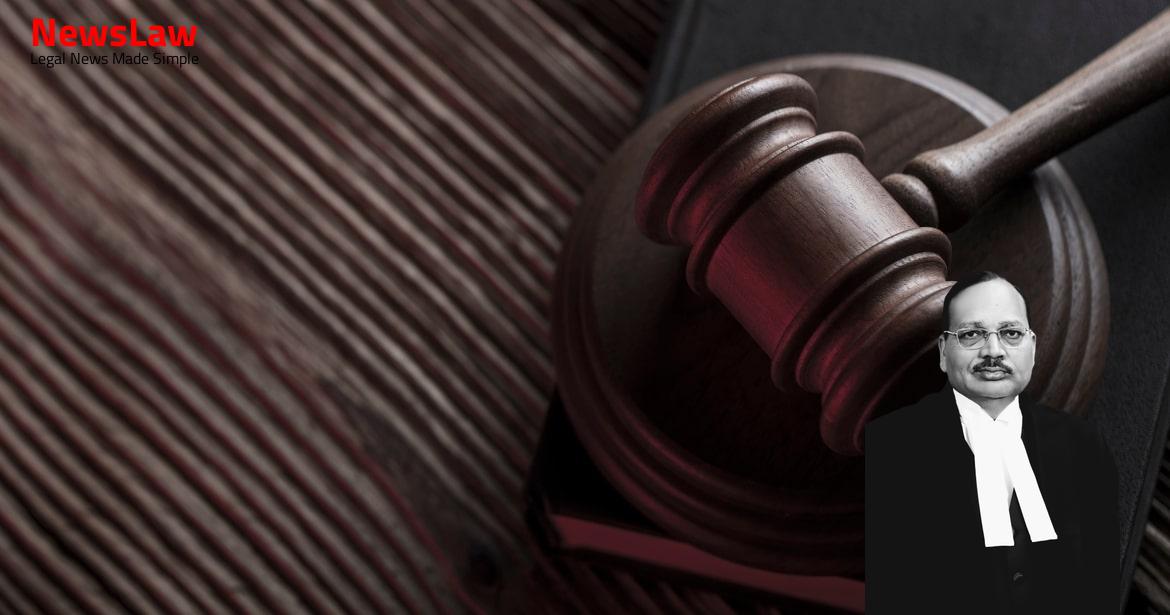Explore the intricate legal analysis conducted by the court regarding the interchangeability of reserved posts in a recent case. The emphasis is on understanding the reservation rules, the prohibition on de-reservation or interchangeability of posts, and the significance of following the law for recruitment decisions. Delve into the complexities of the case to gain insights into the legal intricacies surrounding the issue at hand.
Facts
- The High Court noted that the methods adopted by the protesters were deemed unfortunate, improper, and incorrect.
- All notified posts of Backward Classes were filled up based on merit following the High Court’s direction.
- A Public Interest Litigation (PIL) was filed regarding the vacant posts of Schedule Caste category, which was disposed of by the Court directing the State of Punjab to consider the petitioners’ representation.
- A miscellaneous application by OBC candidates seeking a recall and modification of the direction in the PIL was also disposed of with a modification for the applicants to be granted a hearing by the authorities.
- The High Court decision to dismiss the writ petition was based on the statement made by the State of Punjab’s Additional Advocate General regarding the decision to re-advertise the unfilled ETT posts and fill them in accordance with the law.
- A comprehensive affidavit was filed regarding the vacancies and steps taken for de-reservation/interchangeability of SC/ST posts to OBC category.
- High Court directed Department of Welfare to consider applicants, who were granted time to file fresh representations.
- Principal Secretary rejected representations using incorrect instructions, which were not applicable.
- High Court directed State Government to pass a fresh order as per relevant policy letter.
- State Government declined to interchange SC/ST posts to OBC category, stating that merit candidates were already appointed.
- Appellants applied for ETT posts in Backward Class category and claimed interchangeability of unfilled SC/ST posts.
- Dismissal of claim by State Government led to Writ Petition seeking direction to fill up SC vacant posts.
- Media attention on the issue resulted in another round of orders and representations by appellants.
- Appellants argue for interchangeability of SC/ST to OBC posts based on Policy Letter No. 17246.
- Court directed respondent to pass order as per previous directions.
- Inaction by Punjab government led to PIL, where applicants protested against non-filling of vacancies.
- Request for meeting with Chief Minister and restoration of Policy Letter instructions were made by protesters.
- State government rejected claim again, citing incorrect facts about withdrawal of Policy Letter instructions.
- About 100 eligible OBC candidates available, but 595 SC/ST posts remain unfilled due to lack of candidates.
- 2006 Act does not restrict interchangeability of SC/ST posts to OBC category.
- Applicants filed for modification of orders, seeking opportunity of hearing.
- Controversy surrounded State’s inaction in filling ETT vacancies, despite advertisements.
- Education Department sought guidance on interchangeability, but Department of Social Justice denied it.
- The issue remains unresolved.
Also Read: Analysis of Financial Statements as Acknowledgment in Limitation Act Case
Arguments
- The State Government did not consider their own policies and attempted to rely on instructions that were not relevant to the issue.
- Fresh advertisement to fill up the Posts of ETT was issued without addressing the appellants’ grievance regarding interchangeability of the posts and considering them for appointment.
- The respondent’s counsel argued that de-reservation is not permissible as per Section 7 of the 2006 Act.
- The Department of Social Justice, Empowerment, and Minority rejected the appellants’ claim based on the 2006 Act and state government instructions.
- Issuing the fresh advertisement to fill vacant ETT posts has commenced the selection process, following the High Court’s order without error.
- The State Government is now duty-bound to fill the vacant ETT posts expeditiously as per the High Court’s order, prompting the start of the selection process.
- The authorities have decided to re-advertise the posts and fill them in accordance with the law.
- The concern is for the safety of the protesting youth who may have misguided beliefs, leading to the need for counseling and guidance.
- Ms. Tanu Bedi, Advocate (Amicus Curiae) suggests keeping the matter pending to establish guidelines for future cases like this.
Also Read: Landmark Legal Analysis in Conviction Appeal Case
Analysis
- The High Court has deemed the actions of the protestors as inappropriate and wrong.
- The 2006 Act prohibits de-reservation or interchangeability of posts from SC/ST category to OBC category.
- The Policy letters from the Punjab Government highlight the process of reservation and interchangeability between Scheduled Castes/Tribes and Backward Classes.
- The appointing authority cannot de-reserve a vacancy meant for a specific category without approval.
- The interchangeability of vacancies was withdrawn in 1964, emphasizing the importance of following reservation rules.
- The Court dismissed the petition as no actionable decision was pending, and the State was advised to follow the law for recruitment.
- Backward Class candidates availing vacancies would trigger a domino effect in filling reserved positions.
- Vacancies referred in sub-section (1) can be filled in the public interest.
- Vacancies must be referred to the Department of Welfare of Scheduled Castes and Backward Classes for de-reservation if necessary.
- The Department may de-reserve a vacancy if deemed necessary, with the condition that it will be carried forward against an unreserved vacancy.
- No de-reservation of reserved vacancies allowed for direct recruitment or promotion.
- If no suitable candidate from Scheduled Castes or Backward Classes is available, the vacancy may not be de-reserved.
- The argument put forth by learned senior counsel Mr. Patwalia is rejected.
- The process to fill up the vacant posts of ETT in the state has already been advertised, following the law.
- Relief as prayed in this appeal is not granted.
- Rejection of claims by departmental authorities based on wrong instructions does not confer rights to appellants.
- Departmental authorities mentioning incorrect facts does not confer right to appellants to seek interchangeability of unfilled posts from SC/ST to OBC category.
Also Read: Analysis of Territorial Jurisdiction in Arbitration Transfer Petition
Decision
- The present petition is disposed of.
- An order is to be passed within four weeks as per the previous order.
- The court does not see a need to interfere with the impugned order.
- The interlocutory application is disposed of.
- The application for impleadment is dismissed as withdrawn.
- No order as to costs.
- The appeal is dismissed.
Case Title: MANDEEP KUMAR Vs. U.T. CHANDIGARH (2022 INSC 284)
Case Number: C.A. No.-001908-001908 / 2022



